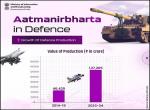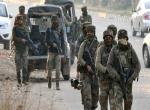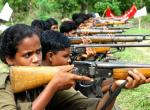At long last, the Union Ministry of Home Affairs and the governments in the various affected States seem to have come on to the same page in addressing the challenge thrown-up by Naxalites of Communist Party of India (Maoist), CPI Maoist or Maoists, in short.
Addressing the Conference of Chief Ministers of Naxalite/Maoist-affected States, on August 26, 2019, the Union Home Minister asserted that the Centre and the States have to work together to comprehensively defeat the Maoists. On their part, the various affected States urged the Union government to extend additional support by way of finances and deployment of Central Armed Police Forces (CAPF). The Home Union Minister said the Maoist movement, “is one of the major internal security challenges faced by the Nation … [it] has no place in Prime Minister Shri Narendra Modi’s vision of ‘New India’”. The Minister further said, “synergy between the Centre and States can effectively address the issue…” Even as the Minister outlined various security and development initiatives being undertaken by the Union Government, he has specifically asked the States to focus on ‘capacity building of their police forces’. This is the sticking point.
One the one hand, the affected States have pleaded for deployment of addition CAPF battalions and have also asked for additional funds under various heads – fortified police stations, training, etc. – and waiver of the money they have to pay for the deployment of CAPF battalions. Also, the affected States wanted the Union Government to fully meet/enhance its share of the expenditure on some of the development schemes that have been initiated by the latter. The affected States have repeatedly cited lack of adequate financial resources for them to strengthen the capacities of their police forces and to undertake development work. It is time that the Union Government and the affected States arrive at a meeting point on this issue -finances.
One possible way out is that, while the Union Government could make available some additional finances for a limited duration, the affected States need to cut-down on their populist schemes and programmes and build the capacities of their police forces. Unless the government(s) assure a secure environment the Industry would not be keen to invest in the affected States. Several billions of rupees are at stake in those States. Investment, both domestic and foreign, in Eastern and Central India in power generation, mining and mineral resource-based industries has been held-up due to the lack of a secure environment. Further, establishing industries would generate employment -- both direct and in ancillary industries, which would result in the economic empowerment of the populace, and thus, wean them away from the revolutionary path; additionally, it would reduce, if not erase, the need for populist schemes and programmes.
While shrinking the recruitment base through providing employment it is equally important to strike at the finances of the Maoists. Some effort in this direction has been made in Bihar and Jharkhand. Money was seized and bank accounts and properties of Maoist leaders have been frozen. For instance, police in Ranchi arrested, in September 2017, the brother of Oggu Satwaji, a member of the Maoist Central Committee (CC) and Central Military Commission (CMC), and his associate, and recovered a total of Rs 25 lakh and gold from them. Quoting the Ranchi Superintendent of Police (SP), a media report of September 2, 2017 said, “Earlier, too, Sudhakar had called his brother to Gumla and Latehar jungles and given him money to run the family. The other accused, Satyanarayana, revealed that the Maoist leader had invested crores of rupees in gold and land.” Satwaji later surrendered to the authorities on February 11, 2019. According to a well-known authority on the Maoist movement, Satwaji told his interrogators that ‘in the Eastern Regional Bureau (ERB) area -- comprising, Bihar, Jharkhand, West Bengal and Upper Assam – accounts of funds collected and expenditure incurred are not maintained diligently, unlike in other Bureaus’, which explains how Satwaji was able to siphon-off a lot of money, including the amount and gold, that was seized from the possession of his brother.
According to one study, it is estimated that the Maoists collect not less that Rs 240-260 cr annually, thorough a complex system of levy and extortion. Satwaji further told his interrogators that the rebels were required to maintain reserves for two years while collecting the money required for expenditure during the current year; however, they have not been able to maintain the desired quantum of reserves.
At the same time, as the Union Home Minister noted, the affected States need to ‘rationalise’ their surrender and rehabilitation (S&R) policy. As it obtains, the Union Ministry of Home Affairs has issued guidelines for S&R of the rebels, while the States are free to adapt these to suit their respective areas. In fact, the States need to encourage surrender of the armed cadre. In this context, Andhra Pradesh-Telanagna have shown the best results in the country. While a number of surrenders are being reported in Chhattisgarh and Jharkhand, one cannot miss the fact that these are not hardcore, armed cadre, but members of the Front/Mass Organisations of the CPI (Maoist), commonly known as militants or people’s militia, belonging to organisations such as Dandakaranya Adivasi Kisan Mazddor Sangh (DAKMS), Dandakaranya Adivasi Mahila Sangh (DAMS) etc.
Surrender and Rehabilitation is as important element of the strategy to deal with the Maoist challenge. Increase in surrenders would dent the Maoist movement and choke the wind form under its sails, as people would gradually, and naturally, lose faith in Maoist ideology.
The Union Government has announced, in 2015, a National Policy and Action Plan to deal with the Maoist challenge encompassing security, development, ensuring the rights of the local people (i.e. adivasis) and public perception management. Now that the Union Government and the governments in the various affected States are on the same page, and the Maoists are losing ‘ground’ –– considerably high level of attrition, fall in recruitment, aging leadership, large number of surrenders/arrests, reduction in geographical presence –– there is every need to adopt a focused, time-bound approach to comprehensively defeat the Maoist challenge. That will strengthen democracy and bring in rapid development by the year 2022 –– when we celebrate the 75th Anniversary of our Independence.
(The paper is the author’s individual scholastic articulation. The author certifies that the article/paper is original in content, unpublished and it has not been submitted for publication/web upload elsewhere, and that the facts and figures quoted are duly referenced, as needed, and are believed to be correct). (The paper does not necessarily represent the organisational stance... More >>
Image Source: https://socialissuesindia.files.wordpress.com/2012/10/maoist-violence.jpg











Post new comment